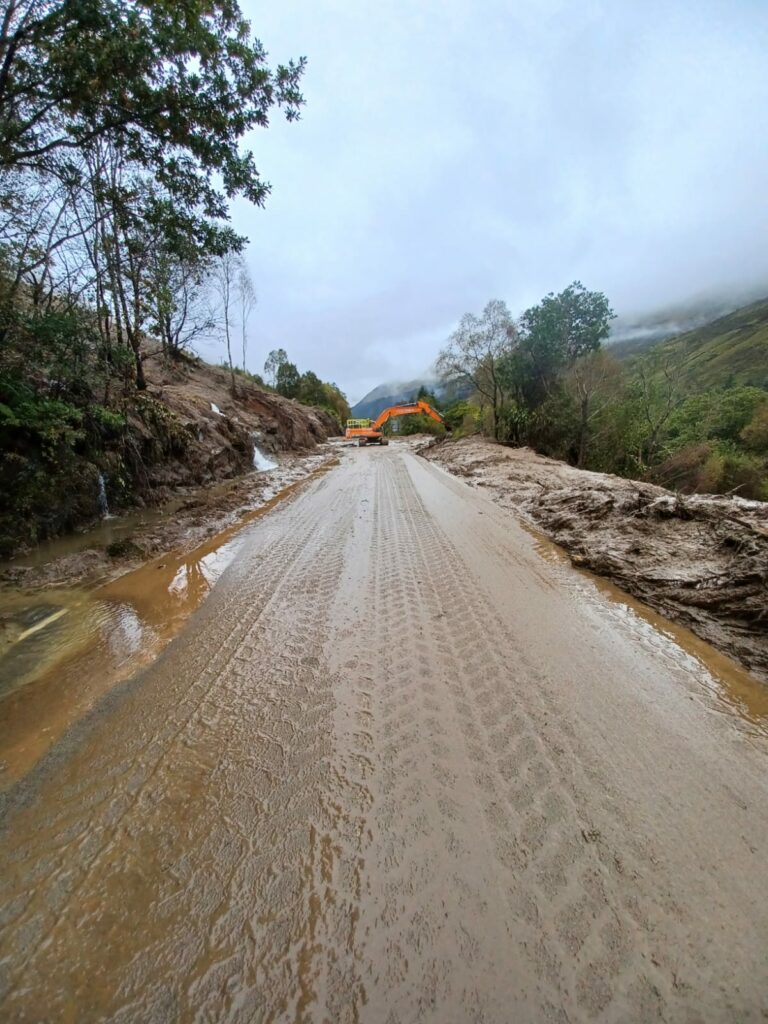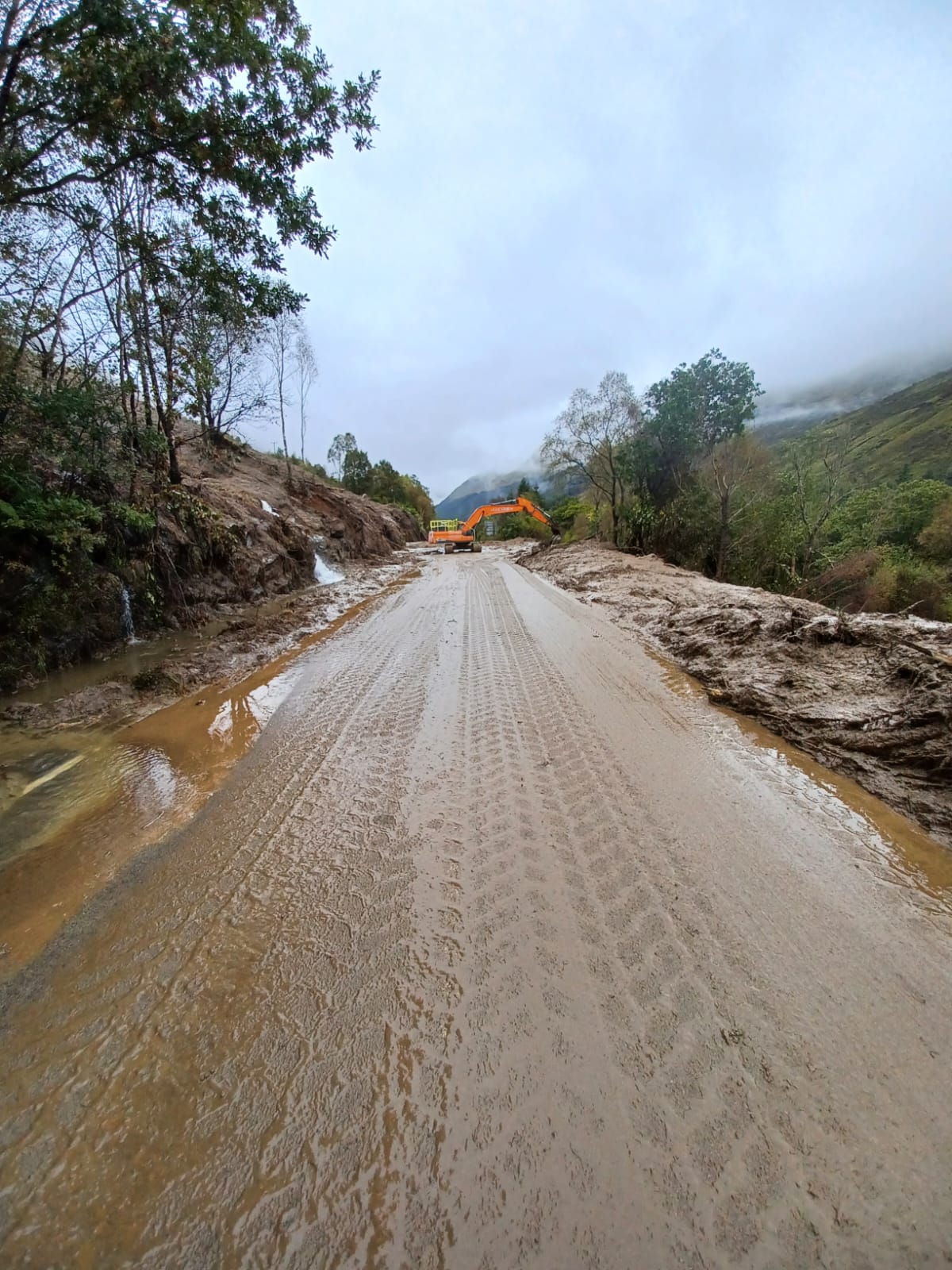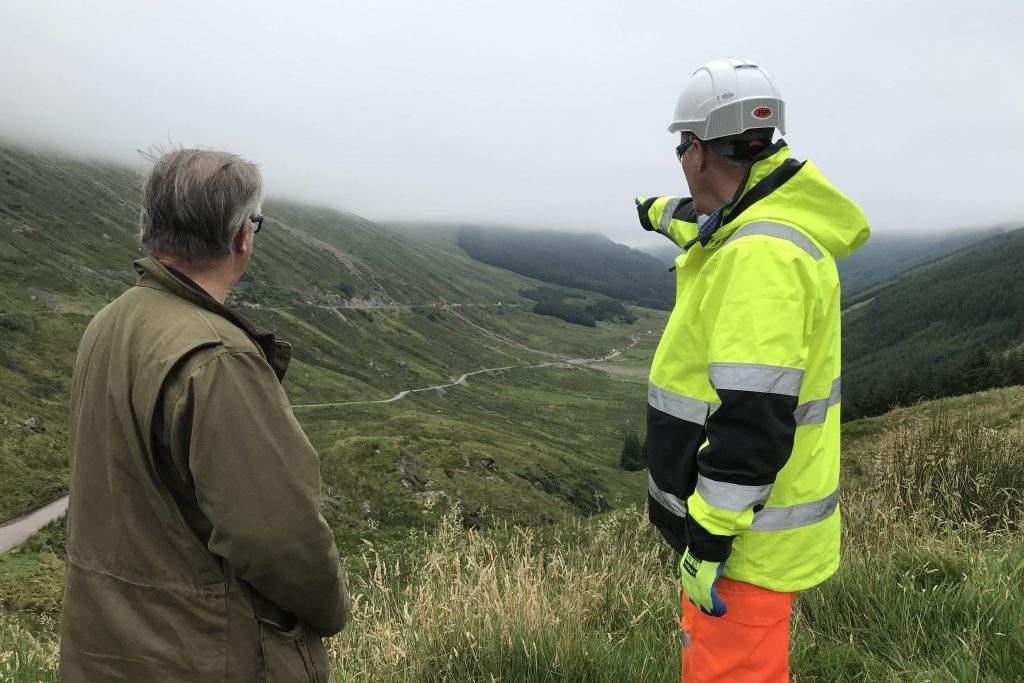Closures of A83 Rest and Be Thankful will be ‘recurring theme’ as increased rainfall causes more landslides

This post was originally published on this site
Scotland’s A83 Rest and Be Thankful has closed again as heavy and persistent rainfall caused several landslips over the weekend, an occurrence which will become more frequent with climate change, an expert has warned.
Over this weekend, 7 and 8 October, the area around the road saw a month’s worth of rainfall, around 160mm, fall in the space of 36 hours. This has caused at least seven landslips both sides of Dunoon junction on the A83 between Inveraray and Tarbet.
Transport Scotland stated that by yesterday, 9 October, its contractors Bear Scotland had removed 9,500t of debris from the A83 so far, with a further approximately 2,000t on the hillside likely to need removed before the road can safely open.

A photo of the most recent clear up operation provided by contractors Bear Scotland
Located 80km north of Glasgow, the Rest and Be Thankful viewpoint is the highest point on the A83 in Scotland. The road, which runs through a valley and links the west coast and the Highlands to Scotland’s central belt, has a high risk of landslides and debris flow hazards, which have increased in recent years due to the frequency of heavy and prolonged periods of rainfall.
Before the most recent closure, the A83 was closed for a total of 41 days on 12 separate occasions since 2007. In 2021 alone, the A83 closed for 13 days and 51 nights due to landslides, following the largest recorded landslide in the area in 2020, which triggered development assessment work to find a medium-term solution.
Describing the types of landslips seen in the area, University of Hull vice chancellor and landslide researcher Dave Petley said: “It’s a bit of a recurring theme. They’re all shallow to begin with but then pick up a lot of debris on the way down.
“It makes the landslides bigger and bigger as they come down until they are quite significant when they hit the roads.”
Petley continued: “These are very sensitive to high intensity rainfall, so not rainfall that is long in duration, but short, intense rainfall periods.
“What we are seeing with climate change is that these shorter but more intense periods of rainfall are becoming more and more common leading to more landslips as the natural environment can’t cope.”
This fallout from global warming is further impacted by the fact areas such as the inclines between Loch Long at Ardgarten and Loch Fyne at Cairndow where the Rest and Be Thankful sits are not currently in their natural state.
“This area would have once been wooded but is now not for a number of reasons, agricultural purposes being one of them,” Petley said. “The landscape should be almost completely covered by trees but now it isn’t. It must be considered as a landscape that isn’t in its natural state. The vegetation and shrubbery that is there now isn’t enough to mitigate the landslips and the rainfall it is experiencing.”
Transport Scotland has invested £87M in the maintenance of the full length of the A83 since 2007, £16M in landslide mitigation works at the Rest and Be Thankful and a £3.4M roadside catchpit due to be completed this summer.
While Petley believes these are effective in the short term, he believes a more holistic and natural approach could be more long standing. “We have to think about ways to protect the landscape and restore it back to its natural state,” he said. “It’s the same in other places or similar scenarios will start popping up. We’ve still got a lot of warming to expect on the planet.
“It’s absolutely inevitable the intensity of rainfall will increase in the future and we have to plan for that.”
He said that other measures “are effective now but may not be in the future, and they’re also very expensive”.
Inspections on the A83 after the most recent landslips were conducted on Sunday and will be ongoing while Rest and Be Thankful remains closed and clean-up operations take place.
Road closures are in place between Inverarary and Tarbet due to landslides both sides of Dunoon junction. The hard closure point is at Ardgarten, with Road Closed Ahead at Tarbet.
The usual diversion via A819/A85/A82 at A85 Dalmally is also currently closed due to flooding.
Transport Scotland stated it will provide more information this week after results from the inspections have come in and notify stakeholders on when the road can reopen.
Like what you’ve read? To receive New Civil Engineer’s daily and weekly newsletters click here.





Responses